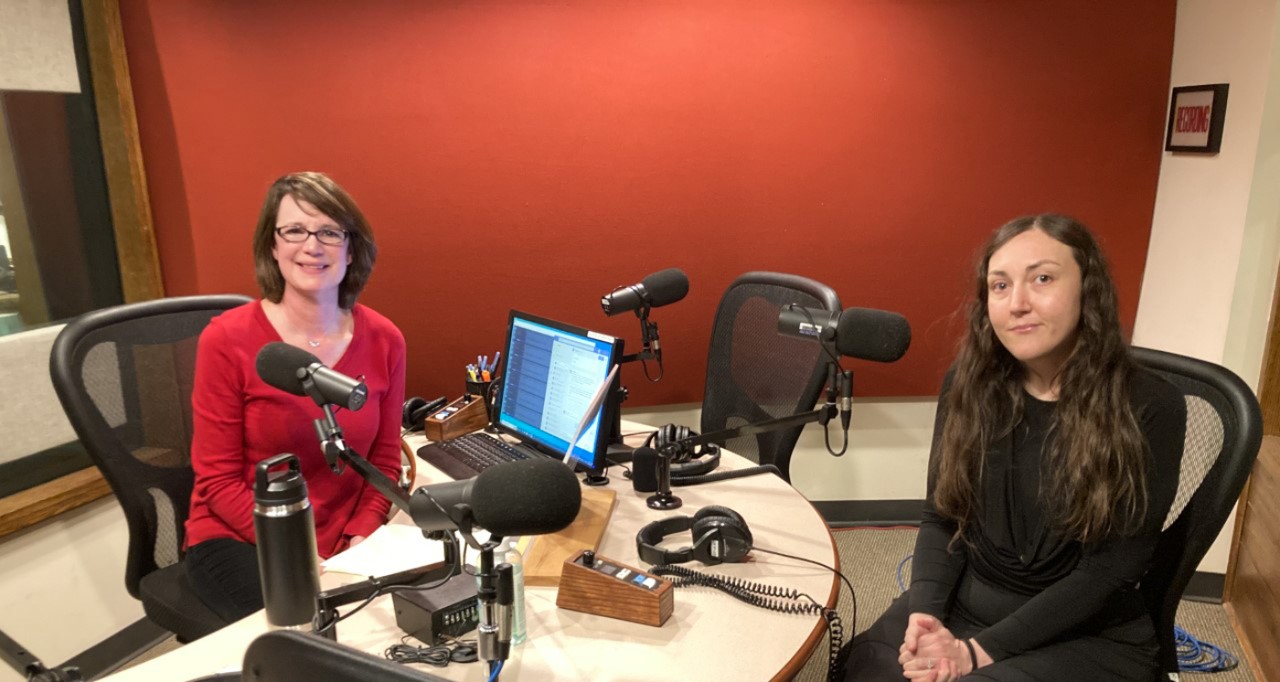
Wired: Therapy part of psychedelic therapy is a mess
UC researcher says tested therapy protocols are needed to protect patients
Wired turned to a University of Cincinnati postdoctoral researcher to understand shortcomings in new experimental therapies that use psychedelics.
UC College of Arts and Sciences research associate Neşe Devenot is co-author of a new opinion piece in the journal JAMA Psychiatry that argues that psychedelic-assisted therapies need tested protocols to prevent patient harm.
Some clinical studies have reported serious adverse events among patients in psychedelic trials that include abuse, self harm and dependency.
“A lot of the ideas that are taken for granted about the way psychedelic-assisted therapy works are not evidence-based. They’re not ideas that are rooted in any kind of traditional scientific evidence,” Devenot told Wired.
And the speed at which researchers are racing to get the therapy out to the masses means that the time to scrutinize this component is running out. “They’re building the airplane while they’re flying it,” she says.
Devenot, who works in UC's Institute for Research in Sensing, was a guest on WVXU's Cincinnati Edition to discuss the growing interest around psychedelics. She spoke to Cincinnati Edition host Lucy May about the risks and potential rewards of psychedelics to treat a wide variety of mental health issues.
Devenot was co-author of a study in the Kennedy Institute of Ethics Journal that found psychedelics might help people change unwanted behaviors by helping them reinvent their perceptions of themselves.
UC researchers re-examined a smoking-cessation study that asked participants to write about their experience with psilocybin in conjunction with clinical treatment to quit smoking. They found that psychedelics combined with talk therapy often helped longtime smokers see themselves as nonsmokers. This new core identity might help explain why 80% of participants were able to stop smoking for six months and 60% remained smoking-free after five years.
“It wasn't just psilocybin,” Devenot told Cincinnati Edition. “Clinical trial leaders and clinicians were suggesting that the participants were at their root a nonsmoker. They were encouraging that shift in perspective.”
Devenot's colleague Allen Davis, director of Ohio State University's Center for Psychedelic Drug Research and Education, also joined the show to discuss its potential and the legal and political environment that makes studying psychedelics a challenge.
Featured image at top: Lucy May, left, host of WVXU's Cincinnati Edition, talks to UC postdoctoral research associate Neşe Devenot about psychedelics. Photo/Michael Miller
More UC research in the news
- Neuroscience News: Psychedelics may help people reinvent themselves
- New York Post: Psychedelics could transform cigarette addiction treatment
- Medical Xpress: Psychedelics may help people reinvent themselves
Related Stories
CNN: Meet TikTok's new favorite pet
March 29, 2023
UC biologist Nathan Morehouse talks to CNN about why people love jumping spiders.
Wired: Therapy part of psychedelic therapy is a mess
April 6, 2023
UC postdoctoral researcher Neşe Devenot tells Wired magazine that tested therapy protocols are needed to prevent harm to patients undergoing psychedelic treatments.
Psychedelic research renaissance
August 16, 2022
Psychedelics such as LSD, psilocybin and MDMA are gaining increasing attention in scientific and medical circles because of the potential they hold for treating anxiety disorders and emotional trauma. UC's Nese Devenot explains why psychedelics are seeing a research renaissance.
UC research institute hosts first annual festival of sensing
May 13, 2022
UC’s Institute for Research in Sensing (IRiS) hosts its first annual Expo & Festival of Sensing next month to convene an interdisciplinary conference exploring the topic of sensing in all its forms, from the sciences to the humanities. The event will be held on May 25 and 26 in Tangeman University Center, 2600 Clifton Ave., and is open to faculty, staff, students and the public. The conference brings together representatives from across disciplines—from engineering, biology, ethics, the humanities, performing arts and more—to explore sensing through a variety of lenses, says IRiS director and associate professor of biology Nathan Morehouse. “We hope the IRiS event raises awareness of the amazing breadth of work happing on sensing at UC, while at the same time stimulating new conversations between the sciences, engineering, the arts and humanities,” he said.
Journal-News: UC studies art, pet robot therapy
February 7, 2022
The Journal-News featured the research of Dr. Soma Sengupta, Dr. Claudia Rebola and Dr. Meera Rastogi, who have developed an art therapy app and pet robot study to see how the interventions can affect the mental health of patients with vestibular schwannomas.
Smithsonian: UC finds pollution in ancient Maya city
July 2, 2020
Smithsonian Magazine examines research by University of Cincinnati that found toxic pollution in ancient Maya reservoirs.
Haaretz: UC study sheds light on environmental collapse
June 29, 2020
Haaretz and other international media report on UC's research into ancient Maya water pollution.
Cincinnati Edition: Did ancient Maya build parks?
July 20, 2021
UC biology professor David Lentz talks to Cincinnati Edition about their multi-disciplinary investigation of plants that grew along ancient Maya reservoirs more than 1,000 years ago.
BBC: Maya's ingenious secret to survival
August 9, 2021
UC researchers discover evidence of water filtration in ancient Maya city of Tikal.
WaPo: Ancient Maya beat heat by planting trees
August 4, 2021
The Washington Post's KidsPost features University of Cincinnati research in the ancient Maya city of Tikal that found evidence of ancient natural parks at reservoirs.
